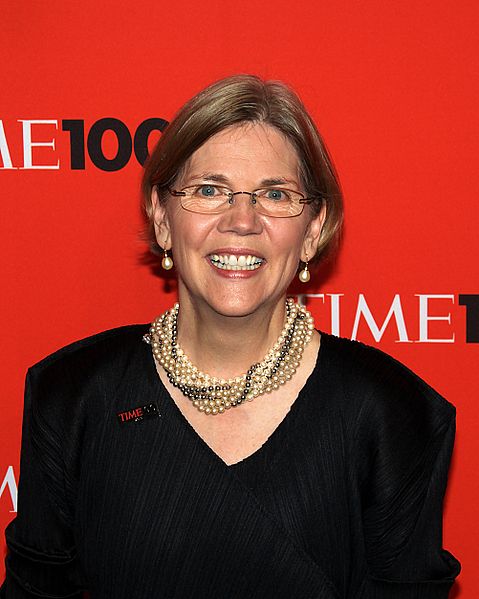Race in a Race: Elizabeth Warren’s Ancestral Claims Stir Controversy
 The incumbent Republican senator from Massachusetts, Scott Brown, is locked in a grueling reelection race against Democratic challenger and Harvard Law professor, Elizabeth Warren. Brown was elected back in 2010 to fill the Senate seat vacated by the late and legendary liberal Ted Kennedy; the defining issue of the special election was Obamacare, which Brown promised to vote against. Brown’s election was expected to end the debate over the health care reform bill, as his replacement of Kennedy eliminated the Democratic 60-vote supermajority necessary to override the Republican filibusters. However, through sly backroom maneuvers involving such now infamous schemes as the Cornhusker Kickback, the bill was eventually passed and America was force-fed Obamacare.
Brown, a Republican representing one of the deepest blue states in the country, has recently criticized Warren over a controversy regarding her heritage. Warren claims that her great-great-great-grandmother was a Cherokee, thereby making her 1/32 Cherokee. This claim alone would have created no controversy, but it was soon discovered that while she was a faculty member at the University of Pennsylvania Law School, she listed herself as a “Native American” in a faculty directory. Later, while at Harvard Law School, she was described by an article in the Fordham Law Review as Harvard’s “first woman of color” law professor. Since this was first publicized, Warren has doubled down on her claims of Native American ancestry and soundly rejected the idea that her purported heritage ever gave her a leg up in her academic career.
The incumbent Republican senator from Massachusetts, Scott Brown, is locked in a grueling reelection race against Democratic challenger and Harvard Law professor, Elizabeth Warren. Brown was elected back in 2010 to fill the Senate seat vacated by the late and legendary liberal Ted Kennedy; the defining issue of the special election was Obamacare, which Brown promised to vote against. Brown’s election was expected to end the debate over the health care reform bill, as his replacement of Kennedy eliminated the Democratic 60-vote supermajority necessary to override the Republican filibusters. However, through sly backroom maneuvers involving such now infamous schemes as the Cornhusker Kickback, the bill was eventually passed and America was force-fed Obamacare.
Brown, a Republican representing one of the deepest blue states in the country, has recently criticized Warren over a controversy regarding her heritage. Warren claims that her great-great-great-grandmother was a Cherokee, thereby making her 1/32 Cherokee. This claim alone would have created no controversy, but it was soon discovered that while she was a faculty member at the University of Pennsylvania Law School, she listed herself as a “Native American” in a faculty directory. Later, while at Harvard Law School, she was described by an article in the Fordham Law Review as Harvard’s “first woman of color” law professor. Since this was first publicized, Warren has doubled down on her claims of Native American ancestry and soundly rejected the idea that her purported heritage ever gave her a leg up in her academic career.
The reason this matter became an issue of discussion in this Senate race has little to do with any sort of attempt by Brown and conservative allies to sling mud at Warren. Rather, this controversy has captured national public attention because, frankly, average Americans are wondering why such value was put on Warren’s heritage and why the issue of racial minutia still holds importance to some. One of the strongest arguments in favor of affirmative action in the workplace, including academic employers such as universities, is that individuals of certain races will face discrimination throughout their lives and they therefore cannot be held to the same standards as individuals of races that are not discriminated against (assumedly, whites). However, assuming that her story is true, Warren is only 1/32 Native American and the idea that she would have faced discrimination or been disadvantaged at any point in her life due to this miniscule aspect of her genetic heritage is nothing short of hogwash. Instead, such racial histories can be used to improperly enhance one’s job marketability. While Warren’s employment at the Penn and Harvard law schools may not have been affected by her purported ancestry, as she claims, there is nonetheless a terribly strong perverse incentive for individuals with non-white ancestors or of mixed race to sell themselves as disadvantaged minorities due to the near-feverish desire among employers (especially in the academic world) to assemble “diverse” employee bodies. However, this desire to closely examine the racial history of individuals and place a premium on non-white heritages is no less racist and despicable than white supremacy.

